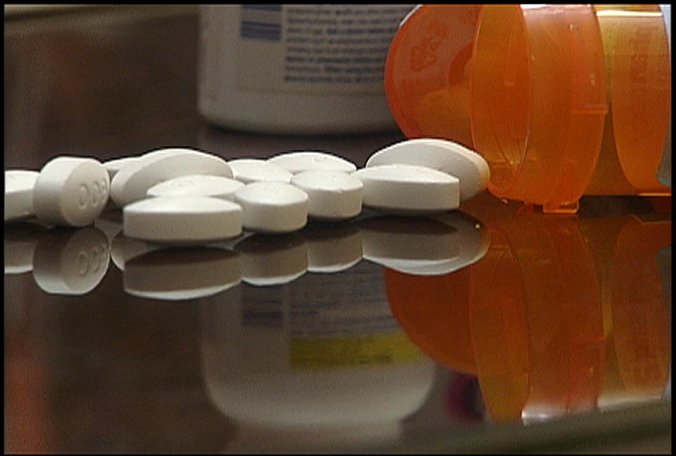Just joining us? This is part five of a five part series. Start from the beginning.
 Cobb County, Ga’s., Juvenile Court Judge Juanita Stedman’s office overflows every Wednesday at 4 p.m. For an hour, with therapists and probation officers filling every chair and – with several sitting on the floor – Stedman and her juvenile drug court team do a rundown of every kid currently in the program.
Cobb County, Ga’s., Juvenile Court Judge Juanita Stedman’s office overflows every Wednesday at 4 p.m. For an hour, with therapists and probation officers filling every chair and – with several sitting on the floor – Stedman and her juvenile drug court team do a rundown of every kid currently in the program.
One by one, Stedman calls out the name of each of 30 or so kids. The assigned probation officer and counselor chime in, giving her an update on how the week had gone for the juvenile.
For these kids, failing a drug test, disregarding a curfew or skipping out on house arrest, most likely means the judge isn’t going to let them go home. More often than not, someone shows up on Wednesday night with one or both of their parents, and ends up being taken to the county Youth Detention Center here in suburban Atlanta.
For the most-addicted kids, or the ones with the most rebellious attitudes, a stint in YDC is fairly common. But it doesn’t take long for kids to realize that Stedman, who can be as compassionate and loving a woman as there is, isn’t one to be tested.
"Todd, why do you think I'm so upset with you?" Stedman asked one of the teenagers in a previous class.
"Because I smoked?"
"You smoked pot three days after I released you. Did you not think I looked serious?”
"Yes ma'am, you did."
And she was. Todd went back to jail that day.
Not everyone succeeds in drug court. And almost all of them will relapse at some point along their path to recovery.
Lynn Abney, a licensed professional counselor and part of the drug court team, said watching kids relapse is one of the hardest parts of the job for her and her teammates.
“I’d say more times than not, we expect relapse,” Abney said. “It’s an unfortunate part of the illness. But I’m a firm believer that even with a slip up, the kid is further along than he or she was at the last slip up. A lot of times, it’s two steps up and one step back. If someone is truly an addict, you at least hope that the time between relapses gets wider and wider. Sometimes it’s about managing relapses.”
Abney, and a handful of other counselors working the Cobb County juvenile drug court, make in-home family counseling visits with the kids – maybe weekly at first, then less often. But it’s a way for this to be more than just a justice or law enforcement program.
“To me, the No. 1 reason it is as effective as it is, is the accountability of the legal system and the clinical treatment of therapy,” she said. “It’s like treating someone with a major depressive episode – medicine is OK and therapy is OK. But medicine and therapy is the best, together. Our program is more successful than just incarcerating or just doing therapy.”
Not everyone who goes through the drug court will succeed. The grip of drugs and alcohol can sometimes prove to be too much.
“It’s tough,” Abney said. “Sometimes what you can do is not going to be enough. I think sometimes, we try too long with some families. We’ve seen tragedies where someone did not have long-term success. Still though, we believe that something that was done or said was helpful. It might not have saved them or prevented relapse, but we were planting a seed. If it didn’t help that kid, maybe it helped his brother, or his friend. Those are things we have to hang on to when we see things go bad.”
